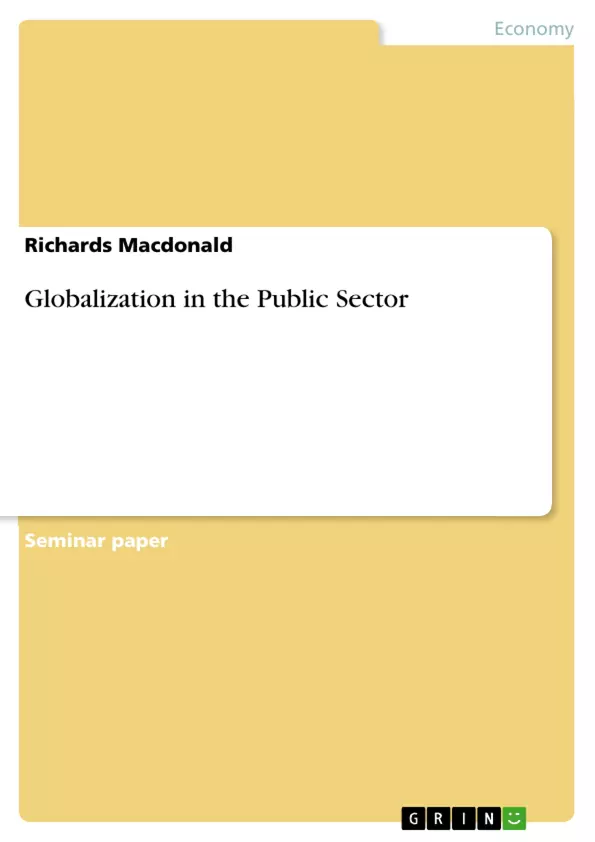Free trade in a liberalized market is basically about achieving easier trade since it allows the market to balance the needs, demand and supply. On this note, globalization integrated with free trade has been an economic debate during and after recovery from World War I and II. On the global scale, the idea of globalized market has been facilitating international trade activities. However, based on its various policies and principles, the free trade has negatively been perceived due to its various economic, environmental, social and political impacts that portray very different implications of free trade. Consequently, various protests, like Seattle in 1999, have been witnessed against the way its principle and policies are formulated and implemented. As much as globalization and liberation of international trade may be seen as presenting various benefits to the world economy, this idea is greatly opposed based on the way it has contributed towards inflicting poverty upon people, poor principles and inequality.
Therefore this essay will evaluate and discuss various pros and cons of this ideology, while supporting the opposition statement; it has brought more harm than good. In this regard, the essay will cover employment opportunities, Infrastructural development, Mercantilism, Interdependence, Workforce, Culture and environment.
Employment opportunities- Globalization and liberalization of international trade has made it possible for international companies, organizations and investors to initiate business activities in other countries. On this note, citizens of receiving countries have been able to secure jobs (Amiti and Wakelin, 2009). As a result, the economy of such countries is increased thus contributing to overall increase in the world economy.
However, it has been established that majority of international investors, especially western companies investing in African or Asian countries; prefer to work with cheap labor to working with costly workforce in the west (Markusen & Venables, 2008). So if this is the case, then it implies that liberalization of international trade can be held accountable for poor economic growth or economic levels of developing countries. In connection with this, whenever these developing countries experience slower economic growths, even the global economy must experience the same effects as continuously been reported in world economic survey reports.
Table of Contents
- Introduction
- Employment Opportunities
- Infrastructural Development
- Mercantilism
- Interdependence
- Workforce
- Culture and Environment
Objectives and Key Themes
This essay aims to evaluate the pros and cons of globalization and liberalized international trade, arguing that it has brought more harm than good. It will focus on the impact of these ideologies on employment opportunities, infrastructural development, mercantilism, interdependence, workforce, and culture and the environment.
- The impact of globalization on employment opportunities, both positive and negative
- The relationship between globalization and infrastructural development
- The role of mercantilism in the context of globalized trade
- The influence of globalization on interdependence and its consequences
- The impact of globalization on workforce, including labor rights and worker security
Chapter Summaries
- Introduction: This chapter provides a brief overview of globalization and liberalized international trade, highlighting the ongoing debate about its impact on the global economy. The essay argues that, while globalization has some benefits, its negative effects outweigh the positives.
- Employment Opportunities: This chapter examines the impact of globalization on employment opportunities, noting both the creation of jobs in developing countries and the potential exploitation of cheap labor. It also discusses the negative effects on developed countries, such as job losses and reduced domestic income.
- Infrastructural Development: This chapter explores the relationship between globalization and infrastructural development, arguing that the need for improved infrastructure to facilitate trade has led to positive economic growth. However, it also highlights the potential for exploitation and the concentration of benefits in certain sectors.
- Mercantilism: This chapter examines the impact of globalization on mercantilism, arguing that powerful countries have used it as a tool to encourage importation and discourage exportation of manufactured goods. This has led to a dependency on imported products and increased inflation in developing countries, hindering economic growth.
- Interdependence: This chapter discusses the political and economic consequences of globalization, arguing that it has led to a new form of colonialism through the influence of multinational corporations. It also highlights the concerns about unfair treatment and the lack of equal opportunity for developing countries.
- Workforce: This chapter examines the impact of globalization on the workforce, arguing that it has weakened worker rights and created job insecurity. It highlights the exploitation of cheap labor in developing countries and the negative consequences on both domestic and global economies.
- Culture and Environment: This chapter explores the cultural and environmental impacts of globalization, arguing that it has led to the suppression of cultural traditions and unsustainable consumption patterns. It highlights the exploitation of resources and the lack of accountability for environmental damage.
Keywords
Globalization, liberalized international trade, employment opportunities, infrastructural development, mercantilism, interdependence, workforce, culture, environment, economic growth, poverty, inequality, exploitation, labor rights, worker security, sustainable trade.
- Quote paper
- Richards Macdonald (Author), 2011, Globalization in the Public Sector, Munich, GRIN Verlag, https://www.grin.com/document/214074



